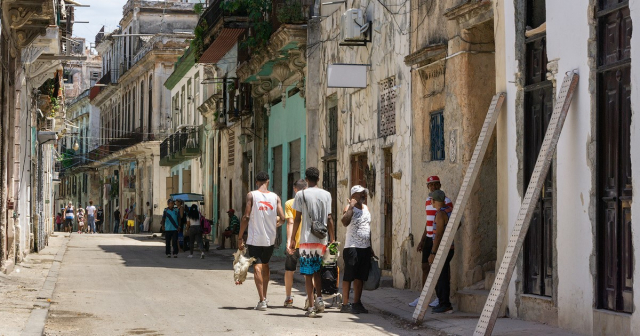A priest from Santiago surprised his community of followers on social media by sharing a simple and creative recipe for preparing a Christmas sweet, using the fruit known as mouse pineapple, a wild ingredient with antiparasitic properties.
Leandro NaunHung shared a video on Facebook that shows the process of preparing the dessert, which begins with carefully peeling the fruit, marking a cross at the tip with a knife to make it easier to remove the skin.
Once peeled, the fruits are briefly immersed in hot water, which helps eliminate the tiny hairs that can cause irritation, explained a woman.
Then, they are boiled for five minutes before being submerged in a syrup previously prepared with sugar to taste, honey, cinnamon, and a bit of patience.
"The next time we should add more sugar so the syrup reaches a thicker consistency," the woman noted, having had to finish cooking on a gas stove due to a power outage. "Even the seeds soften. It’s exquisite," she added.
This sweet treat, besides being delicious, stands out for its medicinal benefits, thanks to the antiparasitic properties of mouse pineapple. It is a clever recipe that not only adds sweetness to celebrations but also exemplifies how Cuban culinary traditions endure and reinvent themselves in times of need.
In other publications, the Catholic priest has demonstrated how to prepare various dishes using ingredients that are easily accessible to the rural population of Santiago de Cuba.
In September, he shared a Creole version of sampa, a long-lasting food that he recommended as a practical solution to the economic and food crisis the country is facing.
NaunHung explained on Facebook that sampa (or tsampa) is "a food made from roasted grains and seeds, rich in energy for times of crisis."
On another occasion, she shared on social media the recipe for preparing a dish of spaghetti with green papaya and squash.
One of the most talked-about posts on her social media was when she shared the preparation of a soup with nopal and banana flower, two ingredients that are not commonly used in Cuba but are widely utilized in other cultures.
Frequently Asked Questions about Father Leandro NaunHung's Survival Recipes
Who is the priest Leandro NaunHung and what is he doing for the rural communities of Santiago de Cuba?
Leandro NaunHung is a Catholic priest in Santiago de Cuba who has been sharing survival recipes on social media to help rural communities confront the economic and food crisis. He provides practical tools and creative recipes to empower people in the face of the acute economic crisis.
What is the Christmas sweet "piña de ratón" and how is it made?
The Christmas treat "piña de ratón" is a recipe shared by Leandro NaunHung that uses this wild fruit with antiparasitic properties. The preparation involves peeling the fruit, briefly boiling it, and then cooking it in a syrup made of sugar, honey, and cinnamon until the seeds soften. It is recommended to add more sugar to achieve a thicker consistency.
What other survival recipes has Father NaunHung shared?
In addition to the "mouse pineapple" dessert, NaunHung has shared recipes such as spaghetti with green papaya and squash, nopal and banana flower soup, and a Creole version of sampa. These recipes utilize local and accessible ingredients, emphasizing their nutritional value and adaptability in the current crisis.
What is sampa and why is it important in times of crisis?
Sampa is a long-lasting food made from roasted grains and seeds, recommended by NaunHung as a practical solution for the food crisis. It can last over 10 years without spoiling, making it a valuable resource in times of scarcity. It is prepared by roasting the grains, grinding them, and mixing them with honey before forming balls that are dried in the sun.
How has NaunHung's work impacted the rural communities of Santiago de Cuba?
NaunHung has had a significant impact on rural communities by providing not only spiritual guidance but also practical support to face everyday challenges. Its focus on food self-sufficiency and solidarity has strengthened community resilience in the face of the economic crisis. Additionally, it has promoted initiatives such as can recycling to generate extra income.
Filed under:
